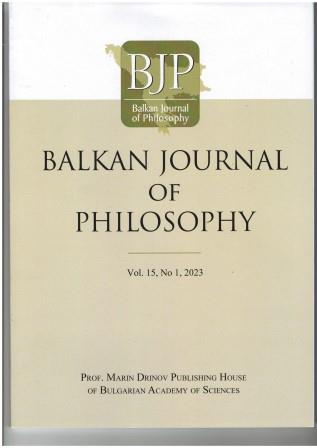Creative and research segments of European humanism: Development of a single cultural space
Creative and research segments of European humanism: Development of a single cultural space
Author(s): Olena Onishchenko, Svitlana Kholodynskaya, Iryna Muratova, Yevheniia Myropolska, Maryna TernovaSubject(s): Philosophy, History of Philosophy, Ethics / Practical Philosophy, Political Philosophy, Social Philosophy, Special Branches of Philosophy
Published by: Институт по философия и социология при БАН
Keywords: segment; falsification of feelings; corruption of consciousness; turn; metamodernism; personalisation; dialogism; polygenre; polystylism
Summary/Abstract: The relevance and theoretical weight of the mentioned topic of research consists in the definition of the phenomenon metamodernism, which, in modern humanitarian knowledge and in literary and artistic practice, determines the need to distinguish and analyse segments of European humanism as means of in-depth reproduction, nuance and personalisation of historical and cultural stages, in the context of the specified systematisation of the movement of segments from the middle of the 19th to the first two decades of the 21st century. The main goal of this study, considering the creative and research potential of segments that contributed to the gradual layering of specific features of European humanism, is the reconstruction of arguments for and against those processes that caused the development of a single cultural space. The basis of the methodological approach in this study is the principles of historicism with the assignment of analytical, comparative, and chronological approaches to the determination of a wide range of issues that are of significant importance in the context of the stated topic. In the course of carrying out this research, results were obtained that have significant theoretical and practical significance, because they contribute to the further scientific and theoretical understanding of the dynamics of the European humanistic movement from the second half of the 19th to the first two decades of the 21st century, and can be used in lectures on aesthetics, philosophy, cultural studies, history and the theory of art for students of humanitarian and artistic creative universities. The results obtained during the implementation of this research, and the conclusions formulated on their basis, are of significant importance in the context of determining the key trends in the recognition of the creative and searching tendencies of European humanism, which play an important role in the process of forming a single cultural space.
Journal: Balkan Journal of Philosophy
- Issue Year: XV/2023
- Issue No: 2
- Page Range: 147-154
- Page Count: 8
- Language: English

